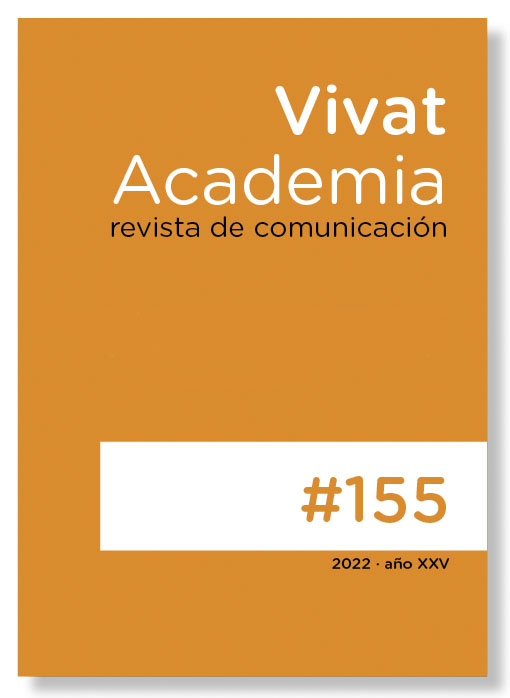Disinformation as a corporate risk: the need for a new methodological approach
Main Article Content
Abstract
This research aims to determine the need for a crisis management model on reputational risks related to media misinformation. Companies recognize that they are facing a new corporate risk and the professional communication sector recognizes the urgency of having measures in the face of a hoax event. For this, the research carried out on Spanish companies on their perception of risk is taken as a starting point, where it was determined that for the professional the risks derived from misinformation are highly dangerous and the gap between the professional perception and the priorities of the organization. This qualitative report, with focus groups on a qualified sample of those responsible for the reputation and corporate communication of Spanish companies, reviews the trend of these crises and the system used in crisis management. The results corroborate the need to create a base methodology that collects the foundations on which disinformation acts. This fact is giving rise to new work dynamics and provides knowledge in the creation of efficient dynamics for the fight against misinformation. The conclusions propose a methodological scheme that can improve the work of communication professionals.
Downloads
Article Details

This work is licensed under a Creative Commons Attribution-NonCommercial-ShareAlike 4.0 International License.
References
AON. (2019). Managing Risk: How to maximize performance in volatile times. https://www.aon.com/2019-top-global-risks-management-economics-geopolitics-brand-damage-insights/index.html
Avaaz. (2020). Why is YouTube Broadcasting Climate Misinformation to Millions? https://avaazimages.avaaz.org/youtube_climate_misinformation.pdf
Canvas. (2018). Approaching the Future 2018. https://canvasconsultores.com/wp-content/uploads/2018/06/Approaching%20the%20Future%202018_.pdf
Chang, B., Olson, T. (2107). Fake News: A Threat or Business as Usual? Burson-Marseteller. http://www.burson-marsteller.com/bm-blog/fake-news-a-threat-or-business-as-usual/
Comisión Europea. (2018). EU Code of Practice on Disinformation. Shaping Europe's digital future. https://ec.europa.eu/newsroom/dae/document.cfm?doc_id=54454
Commisión Europea. (2018). Eurobarometro. Fake News and Disinformation Online. https://ec.europa.eu/commfrontoffice/publicopinion/index.cfm/ResultDoc/download/DocumentKy/82797
Corporte Excellence. (2018). Reputación y riesgo reputacional. https://www.corporateexcellence.org/recurso/las-fake-news-crecen-un-365-y-amenazan-la/0aec2795-d202-1b03-c239-512f623df7ca
Deloitte. (2019). Future of risk in the digital era. Transformative change. Disruptive Risk. https://www2.deloitte.com/us/en/pages/advisory/articles/risk-in-the-digital-era.html
Edelman, R. (2019a). 2019 Edelman Trust Barometer. https://www.edelman.com/research/2019-edelman-trust-barometer
Edelman, R. (2019b). Business must combat fake news. https://www.edelman.com/insights/business-must-combat-fake-news
Estudio de Comunicación. (2018). Influencia de las noticias falsas en la opinión pública. https://www.estudiodecomunicacion.com/servicios/estudio-sobre-la-influencia-de-las-noticias-falsas-en-la-opinion-publica/
Foro Económico Mundial. (2020). The Gobal Risks Report. An Unsettled World. http://www3.weforum.org/docs/WEF_Global_Risk_Report_2020.pdf
Fernández Aragonés, A. y Camon Luis, E. (2020). Educando contra la posverdad. La alfabetización informacional como estrategia para hacer resilientes a los menores en el consumo digital. Zer, 25(48), 309-327.https://doi.org/10.1387/zer.21576.
Kantar. (2019). Dimensión 2019. https://www.kantarmedia.com/dimension/es/authentic-communication-in-a-mistrusting-world/download-report-authentic
KPMG. (2019). Vientos de cambio. La gestión de los riesgos en el mundo digital. https://www.tendencias.kpmg.es/wp-content/uploads/2019/04/Informe_Riesgos_Abril2019.pdf
Llorente & Cuenca. (2018). Contra las Fake News en la empresa: Real Advocacy. Madrid: Llorente & Cuenca.
Llorente & Cuenca. (2018). Uno, nº 31. Madrid: Llorente & Cuenca.
Llorente & Cuenca. (2019). El riesgo reputacional en los consejos del Ibex 35: Logros y retos. https://ideas.llorenteycuenca.com/2019/09/el-riesgo-reputacional-en-los-consejos-del-ibex-35-logros-y-retos/
Llorente & Cuenca. (2020). Disrupción. Madrid: Llorente & Cuenca.
McIntyre, L. (2018). Posverdad. Madrid: Cátedra.
Mckinsey & Company. (2020). COVID-19: Implications for business. https://www.mckinsey.com/business-functions/risk/our-insights/covid-19-implications-for-business
Mut Camacho, M. (2020). Aprendizajes sobre el riesgo reputacional en época de Covid-19: la desinformación como riesgo corporativo. Doxa Comunicación, 31, 19-39, https://doi.org/10.31921/doxacom.n29a10
PwC. (2017). Encuesta Mundial de Seguridad de la Información 2018. https://www.pwc.es/es/digital/encuesta-mundial-ciberseguridad-2018/descarga-encuesta-mundial-ciberseguridad-2018.html
PwC. (2018). Digital Pulse. The fake news problem (and what to do about it). https://www.digitalpulse.pwc.com.au/fake-news-problem-business/
World Economic Fórum. (2019). Manifiesto de Davos 2020: El propósito universal de las empresas en la Cuarta Revolución Industrial. https://es.weforum.org/agenda/2019/12/manifiesto-de-davos-2020-el-proposito-universal-de-las-empresas-en-la-cuarta-revolucion-industrial/
World Economic Fórum. (2020). The Global Risks Report 2020: An Unsettled World. http://www3.weforum.org/docs/WEF_Global_Risk_Report_2020.pdf
Velarde Ramos, A. y Pulido Polo, M. (2018). La reputación corporativa como gestión de la comunicación en las instituciones sanitarias privadas. Revista Estudios Internacionales, 5(9), 243-252. https://doi.org/10.5944/eeii.vol.5.n.9.2018.22554
Xifra, J. (2020). Comunicación corporativa, relaciones públicas y gestión del riesgo reputacional en tiempo del Covid-19. El Profesional de la Información, 29(2), e290220.





